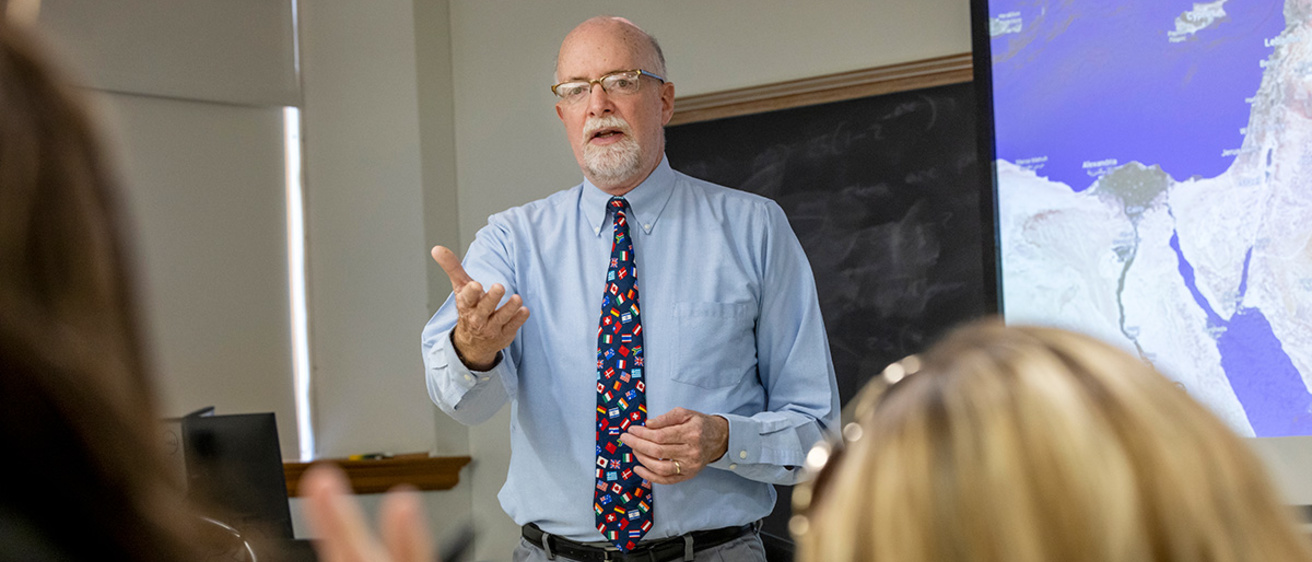Why Iowa?
A degree in political science or international relations at Iowa is your start to a rewarding career that makes an impact in the world.
"Iowa has prepared me for my future by teaching me what professionalism is and a way to navigate life and have a balance between work life, school, and friendships."
News and Announcements

Pacheco receives grant for research on Latino community
Monday, March 18, 2024
Professor Julianna Pacheco received funding from County Health Rankings and Roadmaps for her research on political and community power in Latino communities.

Tom Rice Retires
Wednesday, March 6, 2024
Professor Tom Rice retired after many years as a faculty member and leader within the University of Iowa. We wish Tom the best in his new adventures!

Delaney Behning, 2023 Internship Scholarship Recipient
Monday, March 4, 2024
Thanks to an internship scholarship, junior Delaney Behning spent last summer as a Government Relations Intern with the National Rural Electric Cooperative Association (NRECA) in Arlington, VA.



